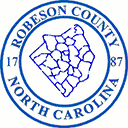Cooperative Extension Helps Farmers Search for Alternative Enterprises
go.ncsu.edu/readext?946293
en Español / em Português
El inglés es el idioma de control de esta página. En la medida en que haya algún conflicto entre la traducción al inglés y la traducción, el inglés prevalece.
Al hacer clic en el enlace de traducción se activa un servicio de traducción gratuito para convertir la página al español. Al igual que con cualquier traducción por Internet, la conversión no es sensible al contexto y puede que no traduzca el texto en su significado original. NC State Extension no garantiza la exactitud del texto traducido. Por favor, tenga en cuenta que algunas aplicaciones y/o servicios pueden no funcionar como se espera cuando se traducen.
Português
Inglês é o idioma de controle desta página. Na medida que haja algum conflito entre o texto original em Inglês e a tradução, o Inglês prevalece.
Ao clicar no link de tradução, um serviço gratuito de tradução será ativado para converter a página para o Português. Como em qualquer tradução pela internet, a conversão não é sensivel ao contexto e pode não ocorrer a tradução para o significado orginal. O serviço de Extensão da Carolina do Norte (NC State Extension) não garante a exatidão do texto traduzido. Por favor, observe que algumas funções ou serviços podem não funcionar como esperado após a tradução.
English
English is the controlling language of this page. To the extent there is any conflict between the English text and the translation, English controls.
Clicking on the translation link activates a free translation service to convert the page to Spanish. As with any Internet translation, the conversion is not context-sensitive and may not translate the text to its original meaning. NC State Extension does not guarantee the accuracy of the translated text. Please note that some applications and/or services may not function as expected when translated.
Collapse ▲Change is continuous in farming. Prices, farm programs, trade policies, technology, markets, and consumer preferences all change continuously, just to name some of the causes. Many farmers search for alternative enterprises and opportunities to help diversify their farm operations. Some farm enterprises benefit from these changes and some are harmed, so the search for profitable alternatives is a continuous challenge. There are seven important questions that should guide the search for alternative enterprises. Answering each one of these is important to achieving success.
- Why are you interested in alternative enterprises?
- What are consumers interested in buying and who will be your customers?
- What are you planning to sell and how will you sell it?
- Will your product require processing and if so, how will you sell it?
- What business and legal issues apply?
- What resources will you need?
- Will it be financially feasible and worthwhile?
Cooperative Extension, through North Carolina’s two land-grant institutions, NC State University and North Carolina A&T State University provides, the latest research findings on new and alternative enterprises to farmers through fact sheets, field days, and tours. Last month, 150 farmers and educators attended the 20th North Carolina A&T Small Farms Field Day at NC A&T University Farm in Greensboro. They received information on the latest research and new technologies to help them become more profitable and sustainable. This year’s field day put a special focus on climate-smart practices and climate resilience. Participants learned about the use of plastic mulch for crop production; growing different varieties of cherry tomatoes to catch the off-season market; and climate-smart farming practices such as no tillage, cover crops, crop rotation, and composting. The animal production of the field day highlighted silvopasture on the farm. Silvopasture combines trees, forage, and grazing domesticated animals in a mutually beneficial way.
North Carolina Cooperative Extension, Robeson County Center, has a meeting and a workshop tentatively scheduled for fall to provide farmers with research-based information and funding opportunities for several new enterprises and opportunities. A regional Fall High Tunnel Greenhouse Workshop will be conducted to provide produce growers with the latest research-based information and the basics of high-tunnel production. An Outreach Workshop will be held to inform farmers and landowners of programs that can provide financial assistance to their farms and information on resources available. Look for more details once plans are finalized.
Realize that enterprise selection is a complicated and demanding process. It should be considered no different than evaluating any other business opportunity. The amount of time and energy spent in research should be directly related to the amount of capital at risk and the potential rewards. All of this takes a lot of work, but it is well worth taking time to make sure the ideas you are considering will work and to avoid problems or disappointments down the road.
For more information, please contact Nelson Brownlee, Extension Area Small Farms Agent, at 910-671-3276, by email at Nelson_Brownlee@ncsu.edu, or visit our website.




